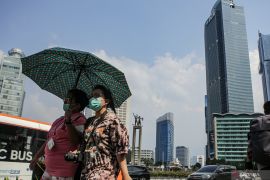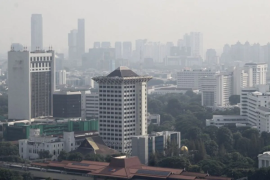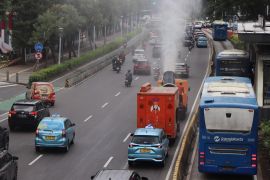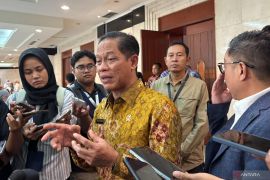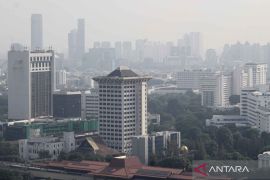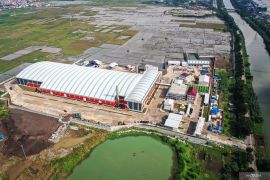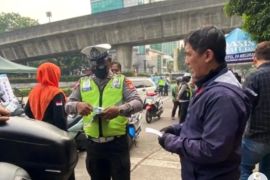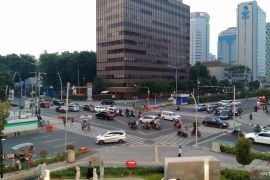"The proportion of air pollution from vehicles can be reduced through tightening regulations and constant monitoring. However, the most effective (possible) air pollution control is to encourage a sustainable mass transportation system," Sustainable Driving System Researcher of BRIN, Hari Setiapraja, noted in a discussion on vehicle emission tests monitored online in Jakarta, Friday.
Setiapraja affirmed that sustainable mass transportation takes into account environmental, social, and economic aspects, thereby making it superior to using private vehicles.
According to the researcher, transportation is the movement of people, not the movement of vehicles.
The general pattern of mass transportation in big cities is for people to use bicycles, walk, or take motorbike taxis (ojek) from their homes to public transportation transfer points.
Setiapraja noted that the people thereafter use various types of public transportation, such as buses, LRT, metro, trains, and trams, to go to transfer points and continue their journey to work.
Related news: Switch to public transport to reduce air pollution: Health Minister
In 2020, the Transportation Infrastructure and Systems Technology Center (PTSPT) from the Agency for the Assessment and Application of Technology (BPPT) had studied the movement of private and public vehicles in Semarang, Central Java.
The result of the study concluded that the road load for public transportation is still low, at below 50 percent. People use private vehicles more than public transportation.
A sustainable transportation system is defined as one in which fuel consumption, vehicle emissions, safety, congestion, and social and economic access are of such levels that they can be sustained into the indefinite future without causing great or irreparable harm to future generations of people, according to Richardson (2000).
"Now, the government is suddenly implementing work from home to reduce emissions that may be true, but in terms of the concept of sustainable transportation, this is likely to be a bit difficult because there are disruptions in the economic aspect," Setiapraja stated.
Public transportation carries more people than private vehicles, so human movement can be integrated. In addition, electric-based public vehicles, such as buses or trains, can reduce air pollution more optimally than private electric vehicles.
Setiapraja believes that merely switching from conventional oil-fueled vehicles to electric vehicles is only a temporary solution.
"Electric vehicles actually have emissions, that is battery waste. My opinion is the transfer of these vehicles to electric-based public transportation," he concluded.
Related news: Govt to focus on three sectors to improve air quality: minister
Related news: Renewable energy-based transportation development prevents pollution
Translator: Sugiharto Purnama, Cindy Frishanti Octavia
Editor: Yuni Arisandy Sinaga
Copyright © ANTARA 2023

